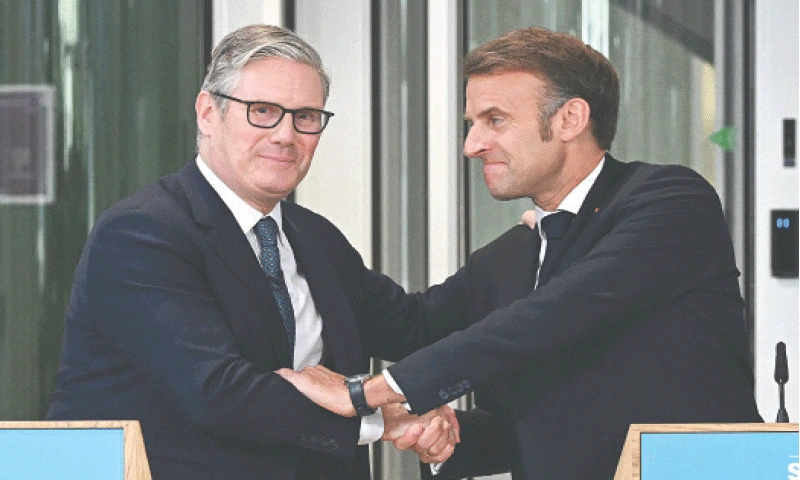UK (Parliament Politics Magazine) – Keir Starmer and Emmanuel Macron are set to announce a “one in, one out” migrant deal allowing limited UK returns to France as part of a Channel crossings plan.
As reported by The Guardian on Thursday, UK Prime Minister Keir Starmer and French President Emmanuel Macron will agree on a new migration scheme. The plan allows Britain to accept some Channel-crossing asylum seekers while returning others to France.
What plan are Starmer and Macron expected to announce in London?
Keir Starmer and Emmanuel Macron will wrap up the French president’s UK state visit in London by announcing a plan to tackle small boat crossings.
As of Thursday morning, officials were still finalising the details of the plan’s launch, but major obstacles, such as resistance from EU nations, had reportedly been resolved.
Mr Macron’s visit, the first by a European leader since Brexit, will conclude with the announcement following a meeting with King Charles and an address to Parliament.
What did UK and French officials say about the migration deal talks?
On 9 July, officials from both countries described the migration talks as “complex” and “fluid,” with No 10 stating it aimed to secure “concrete progress.”
A French insider said the UK’s request for additional funding to support northern coast police remained “highly politically sensitive.”
According to Le Monde, a proposed pilot scheme would see Britain sending back only 2,600 migrants per year, around 6% of all Channel arrivals.
To address French concerns over illegal work, the UK plans to equip Border Force officers with biometric testing kits under its new immigration proposal.
The UK and France have made repeated efforts to reach a migrant returns deal, but progress has remained limited.
What did France want before finalising the Channel migration deal?
Britain committed £480m two years ago to support French coastal policing, funding patrols and surveillance tech along the northern coast.
Just hours before the announcement, talks were still underway over how much Britain would pay, when the plan would launch, and what its scope would be.
French authorities have agreed to intercept migrant boats within 300 metres of their coast, but are now seeking extra funding to deploy officers, boats, and drones.
What held back a UK-France asylum deal in 2023?
Former government ministers said a migrant deal was nearly reached, but France raised concerns that the UK’s shadow economy could attract illegal workers.
In his memo, he argued this would “quickly break the business model of the smugglers” and predicted that “initial numbers, even if large, would subside.”
What did Robert Jenrick say about France’s role in stopping small boats?
The shadow justice secretary said France “could be doing so much more to help us if they wanted.”
He said,
“It is important that we have good relations with our nearest neighbour, France. But I think Macron and the French could be doing so much more to help us if they wanted.”
Mr Jenrick added,
“They could stop the small boats, frankly, tomorrow if they got their gendarmes out on the beaches, into the shallow waters, turning back the boats as some of our other neighbours do, like the Belgians, for example. But I don’t think we should just be leaving this to the kindness of strangers. We have got to have our sovereign deterrent.”
Key facts about Channel migrant crossings
Channel crossings (2025)
- 21,117 migrants have crossed the Channel so far this year.
- That’s a 55% increase from the same period in 2024.
- On track to be the highest year ever for small boat crossings.
- 330 boats have arrived illegally in 2025.
- Average migrants per boat: 58 in 2025 (up from 53 in 2024, 48 in 2023).
Deaths & dangers
- 73 migrants died in 2024 – the deadliest year so far.
- 9 deaths have already been reported in 2025.
- Overloaded dinghies, kayaks, and inflatables increase capsizing risk.
Asylum outcomes
- Small boat migrants = 1 in 3 of the UK’s total asylum claims (2024).
- 68% of them are granted asylum.
- High approval rates: Syria (97%), Eritrea (93%), Yemen (87%), Afghanistan (78%), Iran (71%).
- Low approval: Albania (2%), Vietnam (24%).


